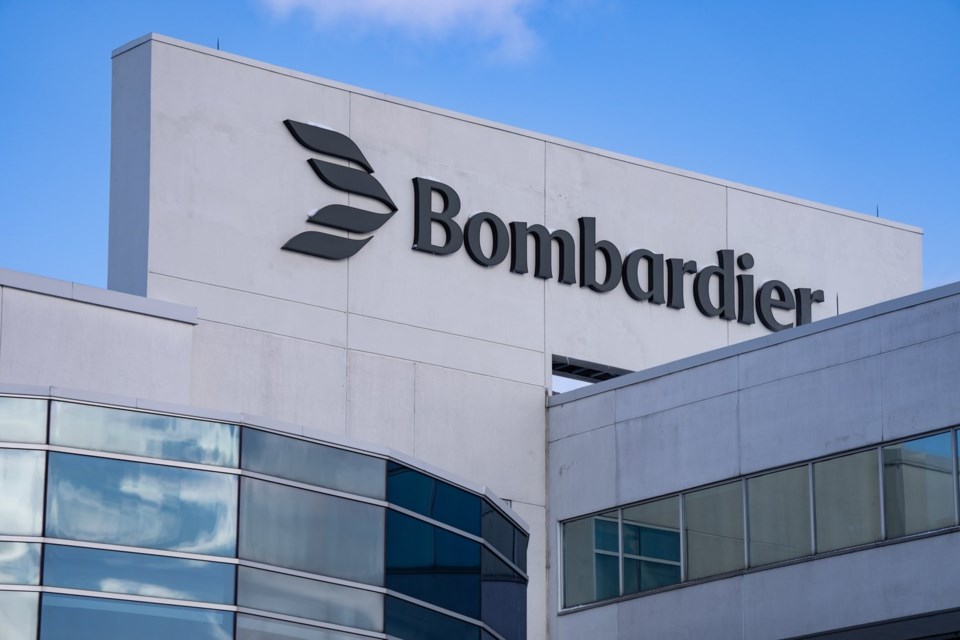MONTREAL — Bombardier Inc. held off on giving investors a financial forecast for the year, citing the uncertainty posed by the Trump administration's tariff threats that risk knocking the company off course.
Chief executive Éric Martel said he was "very disappointed" the business jet maker could not provide targets.
"We need to exercise caution until we see how this all unfolds," he told analysts on a conference call Thursday.
“We are still geared up to meet the 2025 objectives," he added. "But this being said, we still have to be responsible and not provide guidance."
The move speaks to the massive question mark hovering over aerospace, manufacturing and myriad other industries after U.S. President Donald Trump pledged sweeping 25 per cent duties on Canadian and Mexican imports, then agreed last-minute on Monday to defer them for a month. Prior to the pause, Canada also proposed retaliatory tariffs on $155 billion worth of American goods.
What happens after the pause is anyone's guess.
“It’s a lower risk, but it’s still a risk,” Martel said.
The tariffs would pose big problems for Bombardier, which counts more than 2,800 suppliers across 47 states in the U.S. — still its core customer base. American buyers accounted for 63 per cent of its revenue in 2023, analysts said.
Bombardier builds the wings for its ultra-long-range Global 7500 jet just south of Dallas. It transforms Global 6500 jets into military patrol planes in Wichita, Kan.
"The vast majority of our platforms are made up of more U.S. parts and systems than any other country," Martel said.
"Given the global nature of the aviation manufacturing industry, these proposed tariffs as well as potential reciprocating tariffs could have an enormous impact with many unintended consequences."
Martel, who took the helm of the company in 2020 when it was struggling under billions of dollars in debt, proceeded to steer the rail and commercial aviation giant through the COVID-19 pandemic and streamline it into a pure-play business jet outfit.
Its adjusted earnings went from US$200 million in 2020 to US$1.36 billion in 2024. Adjusted profit margins jumped to nearly 16 per cent from three per cent.
Faced with a new threat, Martel said the company is "well-equipped" to deal with potential tariffs but declined to detail the contingency plans he said lay at the ready.
"The big question is how long it’s going to last,” he said. “It’s not going to be a crisis overnight."
Orders for new aircraft continue to roll in at a smart clip. "This includes the U.S. Also worth noting, we have not seen cancellations.”
Bombardier's book-to-bill — the ratio of orders received to deliveries billed, a key indicator of near-term demand for a company's products — remained steady at 1.0 last quarter.
Globally, business jet flight volumes in the first five weeks of the year floated three per cent above the figure from the same period in 2024, according to industry data firm Wingx Advance.
Bombardier also managed to pay off US$400 million in debt last year and boost revenue from services — maintenance and repairs — by 16 per cent over the course of 2024. The services segment now accounts for nearly one-quarter of total revenue, as luxury jet use continues to soar above pre-pandemic levels.
Nonetheless, the lack of a forecast for Bombardier's fiscal year worried some analysts.
"This could imply that (first-quarter) bookings have been impacted by the tariff threat overhang," said Desjardins analyst Benoit Poirier in a note to investors Thursday morning.
Bombardier shares have fallen 15 per cent since Trump's inauguration, including a five per cent drop by midday Thursday.
Taking stock of the Canadian aerospace sector, James McGarragle of RBC Dominion Securities cautioned: "We see Bombardier as the most impacted by tariffs, given final completion of its aircraft occurs in Canada."
The company churned out 57 business jets in its latest quarter, beating last year's figure by one but falling four planes short of the low end of its full-year forecast range.
On Thursday, Bombardier reported a fourth-quarter profit of US$124 million, down 42 per cent from US$215 million a year earlier even as revenues crept higher.
The Montreal-based private jet maker, which keeps its books in U.S. dollars, said revenue for the three months ended Dec. 31 rose to US$3.11 billion from US$3.06 billion in the same period in 2023.
On an adjusted basis, Bombardier increased earnings by 120 per cent to US$3.01 per share versus US$1.37 per share a year earlier. The result far exceeded analysts' expectations of US$2.01 per share.
This report by The Canadian Press was first published Feb. 6, 2025.
Companies in this story: (TSX:BBD.B)
Christopher Reynolds, The Canadian Press




